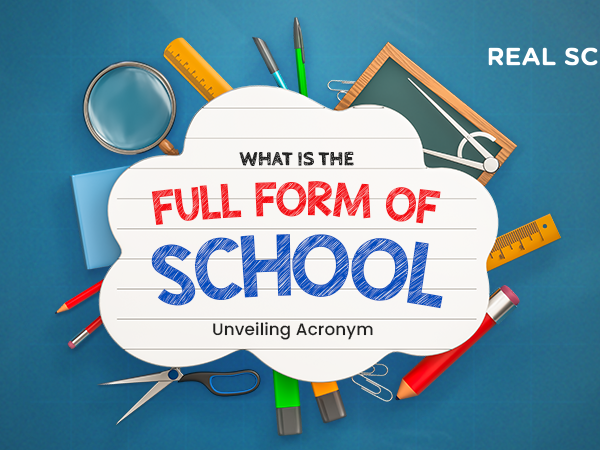In order for your kids to understand the rules of your language, they must experience well-formed statements with proper grammar.
Sentences provide a medium for individuals to communicate themselves clearly in prose. A handwritten thought must have many characteristics in order to qualify as a full sentence. To articulate a complete thought, the main clause requires an individual subject and verb.
Explore different types of sentences in this article, and improve the grammar knowledge of your kids.
English Sentences for Kids
Types of Sentences
There are four types of sentences –
Declarative sentence.
Imperative sentence.
Interrogative sentence.
Exclamatory sentence.
Also Read: Simple English Words for Daily Use for Kids: List Of Words for Kids to Use Daily
Fun Activities for Your Kids to Learn Sentences
You can do a variety of activities with your kids to help them think about various types of sentences. Take a seat with your kid and read his favourite books along, for fun. Assign him the duty of recognising phrases, queries, orders, and exclamations. You can also read from newspapers, websites, music lyrics, or any other medium that your kids find enjoyable and interesting.
Replace the exclamation point with a pause to make it a sentence. Start debating with your kid how the shift in punctuation affects the sentence’s sound and meaning.
Simple English Sentences for Kids: Small Sentences for Kids
Put out the bins (British); take out the trash (American)
Use these lines to tell your kids to take out the trash from your house and put it on the street so that it can be collected the next day:
Can you take out the trash tonight?
Can you please do the dishes?
If you want to ask someone to clean the dishes at home, this is a way of using the expression in a situation like this.
Do the laundry.
You can use this English expression to tell someone to wash dirty clothes by putting them into the washing machine.
“Can you do the laundry please? I’ll do the dishes tonight!”
Tidy up your room.
Your kid’s room can be quite messy. To ask your kids to clean their room, you can use this expression.
“Could you tidy up your room, please?”
Simple Sentences in English: Small Sentences for Kids
Clean it up.
While this is a self-explanatory term, many foreigners can misinterpret it! So, essentially, whenever you’re referring to cleaning something up, particularly if there was a spilling of water or another liquid, you say:
“Jonny, your little sister just spilled her drink, can you clean it up?”
Make the bed.
When you instruct your child to make their bed look good by fixing the blanket and wrapping it with a bed cover, this phrase will help tremendously:
“Sweetie, can you make your bed before we leave?”
Also Read: Opposite Words in English for Kids: Ways to Help them Improve their Vocabulary
Small Sentences in English for Kids: Small Sentences for Kids same
Get dressed
Another quite easy and useful English word that is often used at home:
“Honey, I think it’s time to get dressed – we have to go in an hour!”
Walk the dog.
Did you get your child a puppy? So, I think you’ll have to ask them to walk him each day by saying something such as:
“Did you walk the dog yet? It’s getting late!”
Did you lock the door?
This is a rather self-explanatory expression, but as you might know, many of us, outsiders, struggle to say even the most basic things in English due to various proficiency issues!
Why should Your Kids Learn English?
English is an international language that is required in many fields. Check out the below points to understand why is it so important to know English.
Workplace
If you check the list of work ads today, you’ll find that almost every one of them needs English. Companies expect their workers to learn English not only to connect with foreign colleagues or customers, but also to grasp IT software, instruction manuals, and documents. Some companies actually want their workers to be prepared for the likelihood of English is important in their businesses in the upcoming future.

Abroad Universities
Many colleges nowadays require their students to have a certain degree of English proficiency. Students must be able to read and conduct research on their subject in English, as well as follow lessons taught in English in some scenarios. Some students may also be able to spend some years of their undergraduate studies abroad at an English speaking college. You may have even considered giving your kid the opportunity to complete their entire university studies in the United Kingdom or the United States. Certainly, your child must be educated in order to do so. You will be unable to apply for a job if you do not have a strong command of the English language.
Travelling Abroad
English is the language most widely used as a foreign language in the world. This shows that no matter where you go, English is the language of communication. Travelling to other areas of the continent and farther afield would become much faster and simpler than it is now. As a result, the next generation must be prepared.
Also Read: How to Develop A Child’s Personality? Tips to Help Your Child’s Personality Grow
Entertainment
Whenever you want to search for information on the internet, read posts on social media, play music, play games, or enjoy a tv series, English is the most commonly used language. In terms of young students, it’s something that will become increasingly relevant as the internet grows.
Easy to Learn
Another significant advantage of learning English as a kid is that it is much simpler than training as an adult. Kids, like sponges, can absorb a lot of knowledge quickly and without challenging it, as adults do. A child is more open to various expressions and can even learn flawless pronunciation, which is almost difficult for an individual. From a practical standpoint, kids have much more opportunity than adults and can easily devote time to learning English. If you encourage your kids to learn English now, he or she will save a lot of effort in the future.

Explore More and More
Learning English allows a kid’s mind to be opened to new ways of viewing things and communicating themselves. Kids have more opportunities for saying what they want because they have many ways by which to share their thoughts and feelings. It has been demonstrated that being fluent can improve problem-solving and multitasking abilities. Besides that, knowing English will cause your kid to have a much greater number of legitimate cultural interactions with people from all over the world, whether in person or over the phone.
Conclusion
To get better and better in any language, practice is a must. To increase the fluency of your children’s English, make them practice some activities that are mentioned in this article. As you have read how English is important for your life and future, you must have got the fact that your children must learn the language at an early age possible.
Liked the article and looking for more like this? Check out the blog section of The Real School Of Montessori which has a lot of articles to help you out.
Also Read: How to Teach English Speaking for Kids? Start at an Early Age to Excel in Future







